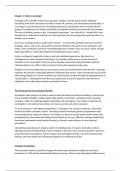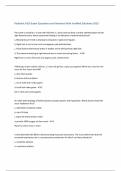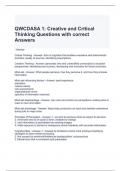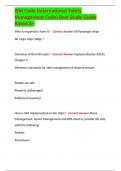Samenvatting
Summary Chapter 1 of Sociology by Anthony Giddens and Philip W. Sutton
- Instelling
- Erasmus Universiteit Rotterdam (EUR)
- Boek
- Sociology
This summary of the first chapter of Sociology by Anthony Giddens and Philip W. Sutton introduces the foundational concepts of sociology, offering a clear overview of key figures such as Karl Marx, Auguste Comte, Émile Durkheim, and Max Weber, along with their contributions to the discipline. The ...
[Meer zien]









